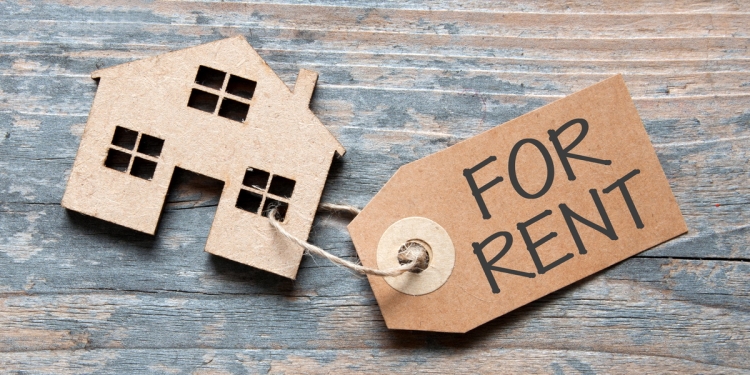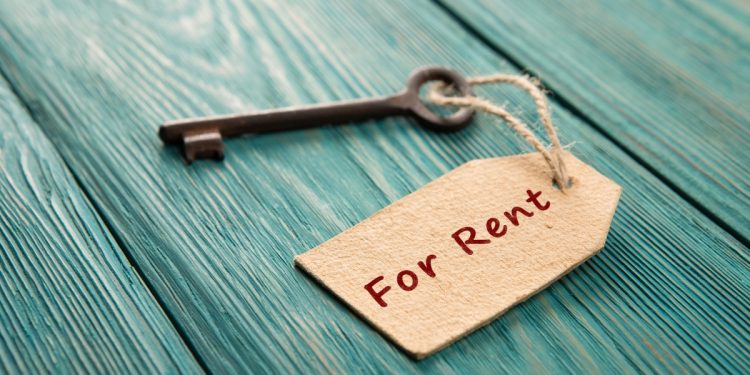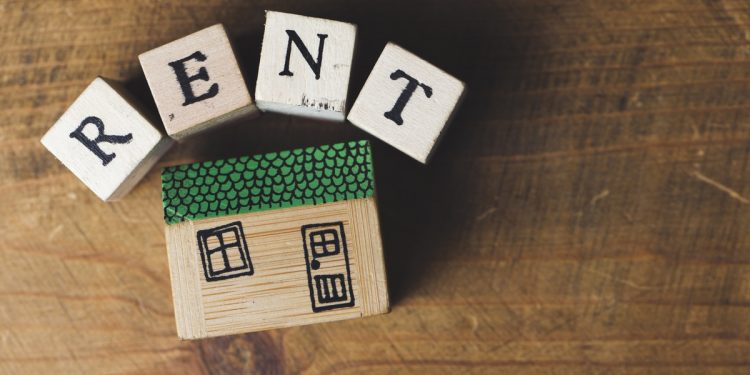People who rent property in Mexico far outnumber the people who buy homes and this creates a large and buoyant market for house rentals across the country. Rental properties are plentiful, commonplace, and varied. There is something to suit every need, and every budget.
Finding a property to rent in Mexico
One of the first things to consider when you come to Mexico to live —whether part-time, full-time or for a defined period— is finding a house to suit your lifestyle needs.
Most people begin their search for property online, and a cursory glance at the Mexico’s principal property listing sites suggests that there are at least 100,000 residential properties for rent across Mexico right now.
Just as buying property successfully requires close attention to the location, the same rule applies for acquiring good rental property. If you don’t know the area, we recommend you seek the help of an agent or other people you may know locally to help you gauge the locality and its neighborhoods.
The two articles below will help you to consider your accommodation needs and provide practical guidance about finding a home for rent in Mexico.
Further insights about searching for and choosing a home rental
Finding suitable accommodations for your lifestyle in Mexico
The practicalities of finding a house rental in Mexico
Property rental costs in Mexico
When you’re seeking property rentals in Mexico, you’ll find there is something for every budget, from rustic old casitas which may have limited services and suit someone who wants to get away from ‘the trappings of modern life’ (or perhaps as part of a writing, reading, painting, or meditation sojourn) to mansion houses offering every conceivable luxury—and everything in-between.
Rents in Mexico have been rising in recent years, especially in Mexico City and environs. The days when rents were a ‘bargain’ in Mexico appear to have passed, with property owners demanding higher rents and some tenants willing to pay a premium to live in certain locations (or areas within larger cities) and/or in newer, better appointed and maintained properties.
See the section at the foot of this article for a directory of the main property listing sites in Mexico. Browsing these will help you get a feel for the market and gauge current rental prices at locations across Mexico.
Beware of over-paying for rent
A common mistake made by inexperienced foreigners renting in Mexico is to overpay for rents based on their value perception of rents in their home country.
Homes in Mexico can rent for less because rents are typically aligned to local earnings. It’s worthwhile doing some local research —independent of agents’ and landlords’ say-so— to establish what homes are fetching in rent locally, to avoid overpaying. Most homes rent for 5-15% less than the advertised rental rate.
Rental contracts: formal or informal?
Property rentals in Mexico can be informal or formal, depending on the circumstances. References are usually asked for, but if you have been referred by a friend directly to the property owner no further references may be required. A contract should always be signed between the parties, even with informal arrangements, to avoid misunderstandings.
Formal property rentals in Mexico
Renting formally usually involves the services of a rental agent, although formal deals can also be negotiated with property owners directly.
When a property is rented formally in Mexico, landlords or their agents usually (but not always) ask the prospective renter for a guarantor (in Spanish known as an ‘aval’), who must be someone who owns property outright in Mexico (and this must be in the same Mexican state where the rental property is situated), and is willing to provide a guarantee, in the form a lien on their own property, to guarantee the rent and the condition of the rented property.
In this circumstance, if the renter ceases to pay the rent or causes damage to the property, the property owner can make a legal claim on the guarantor (or guarantor’s asset) to recover the rent owed or to repair damage.
The agent (or landlord) might also undertake a credit check with Mexico’s national credit agency, known as the Buró de Crédito to assess the individual’s ability to afford the rent (but credit checks are not common).
Legal ‘guarantor’ policy in lieu of an Aval
A new service appearing in some states is a ‘legal guarantor service,’ whereby a legal firm offers a rent guarantee to the property owner —similar to an aval— in exchange for an annual fee equal to 35% of one month’s rent (plus sales tax).
In theory the service also protects the tenant, for example, if the water heater fails the same legal firm would ensure the property owner arranges and pays for its repair, and it might also offer to hold your deposit in escrow, so that in the event of a dispute post-rental, the property owner cannot summarily withhold the deposit.
In absence of an aval, the property owner might seek to get the tenant to pay for this ‘rent guarantee’ service, although astute tenants will negotiate this arrangement as the rent-payment guarantee is a benefit to the property owner, not the tenant.
Informal property rentals in Mexico
As many people may not have an aval guarantor as described above (and foreign residents will usually find it impossible to find such a person) there is a very buoyant informal rental market in Mexico.
In this situation, property owners rent homes informally to individuals, holding a deposit, which is usually equivalent to one or two-months’ rent.
Some property owners also ask for dated IOUs (in Spanish known as pagarés) —one pagaré for each month of the rental agreement— as a form of collateral against the rent owed over the coming year, and each time the rent is paid, a dated pagaré is returned to you.
No credit referencing takes place, and the entire arrangement is made (semi)informally. Property owners might not ask for a tenancy agreement to be signed, but most will; and most will ask for at least two written personal references.
We recommend you have some form of written agreement in place to protect your interests, secure your dwelling space for the term you have agreed, and avoid misunderstandings.
Tip: When dealing directly with property owners, you will find that they tend to discern whether they want to rent the property to you during your first dealings and meeting together. How much rent you pay and what deposit is required can also be decided at this initial stage. If you are dealing directly with the property owner, be aware that their first impression of you will count.
Rental contracts: typical terms and conditions
The property owner, or their agent, will ask you to sign a lease and these are typically ‘template’ contracts drawn up by a legal firm with a set of standard clauses, although you ought to take time to read through it carefully and understand what you are agreeing to. Contracts are usually written and struck in Spanish.
Initial deposits and rental terms
Deposits and contract terms are by negotiation. One month’s rent deposit is usually the minimum asked for and in formal rentals, you might be asked for a guarantor or asked to sign a legal document that makes you personally liable for the rent and any property damage beyond wear and tear. (See the previous section about formal and informal rentals for more details.)
Property rental periods
Property rental periods vary depending on the property type and the circumstances, and are subject to negotiation.
Formal rentals: If you rent a home formally, you can usually expect a minimum contract term of 12 months (this might be negotiable to 6 months, depending on local demand).
Informal rentals: When renting informally, some property owners insist on a minimum term, usually 3, 6, or 12 months. However, some landlords will be willing to rent on a month-by-month basis, and this type of arrangement can be ideal if you are visiting Mexico for only a short while and don’t want to stay at a hotel the whole time, or when you need a temporary base while you are scouting for property to rent longer-term or hunting for a house or land purchase in the local area.
Short-term vacation/turn-key rentals: Some luxury or vacation homes, marketed principally for leisure or to short-term visitors, are rented by the week (or even by the night). Some of these luxury homes might sometimes be rented for longer terms (a month or longer) at a discount in the ‘off season’ when they would otherwise be left empty; you should contact the owner to discuss this possibility if you are interested in this option.
Rent payments and annual rent increases
Rents are usually paid directly to the property owner, even if you used an agent to find the property, although some agents collect rents as part of their service, especially if the owner is overseas.
Rents are either paid in cash or by transfer to a Mexican bank account. Most rents are due monthly; occasionally you might be asked to pay every two weeks, although this is rare these days. Lease agreements typically cite a 5-day grace period each month, although its good practice to pay rent on time, every time, as this builds trust and rapport with the property owner.
If you are on an extended stay, be aware that rents in Mexico tend to go up annually. Unless otherwise specified in your contract, rents can go up by any amount the property owner sees fit, and you may have only a brief window of time (usually a month or two) to move out if you can’t agree on the increase. Notice periods are usually one month, although you should check your rental contract for these details.
Insurance coverage for your personal items
The owner ought not to have a clause in the contract that places any responsibility of the physical property or structural maintenance on account of the tenant.
You may wish to insure the contents and your personal belongings, and defend yourself against certain third party risks with an insurance policy. Learn more about contents and third party insurance for renters/tenants in Mexico.
Checking out from a rental property
Check your contract to see how much notice you need to give; most contracts will require you to give one month’s notice. Most contracts have a set period (6 or 12 months) and are renewable thereafter by negotiation.
Talk to your local agent or your property owner about this. Be sure to give the property owner and/or agent plenty of notice (in writing) prior to your planned departure.
If the property was furnished, you should go through the inventory with the property owner (or agent if you used one) and provided everything is in good order, your deposit will be returned to you, either directly by the property owner or (rarely) by the agency office if they held the deposit.
Key questions to ask about house rentals in Mexico
When you are exploring a residential property rental in Mexico, it’s helpful to ask some key questions in relation to the property’s characteristics and amenities as not everything you might expect to be available will be present at every property you consider. Here are some key questions to ask:
If you have pets
If you have a pet(s) your first question to ask is whether they will be accepted at the rental property. Many property owners forbid pets (although some will accept a cat) so check this detail with the owner or the agent early in your conversations. Read the practicalities of finding a house rental for more details about this.
Electricity and gas supply
Check the details about the supply of electricity and gas to the property, and ask about the age and current state of the water heater. You might like to ask for copies of recent electricity bills to see how much it typically costs at that property. If the water heater is very old, ask the owner (or agent) if it can be replaced.
Water supply
Check the water situation: how is water supplied to the property? Ask about the state of the shower (or check this when you visit), and whether there is a water purifier (water for drinking) adjacent to the main tap in the kitchen; ask if it requires maintenance, and when the filter was last changed. Most properties have a water pump, for pressure; ask about this; it’s current state and whether it’s automatic, or manual.
Swimming pool maintenance
If there is a swimming pool, ask about the arrangements for its maintenance—and who will pay for things like chemicals, cleaning, filters, etc.
Phone and internet services
Is the phone connected? Is the phone line and internet package included in the rent, or do you pay extra for this?
If you rely on internet access, check with the phone company to ensure that there are lines available locally if there’s no live service at the property: even if there’s a physical line at the property, the local distribution point may be saturated.
If you need internet services and there are no lines available, you might consider using home WiFi delivered over the cellular data network, or if the property is situated in a remote area, you might need satellite internet.
Check all appliances
Check any appliances that might come with the rental. The oven, hob and fridge are worth checking; if the property is older, these are likely to be old too, and you may want to get a plumber in to service the oven and hob (or ask the owners to do this). Older gas-fired appliances are best checked regularly and you might like to install a carbon monoxide detector too.
Old fridges and washing machines use considerably more electricity than newer models. In some cases, you may need to get ovens and fridges replaced, and you might have to fund this yourself if the owner is unwilling or insists that they don’t need replacing when they are passed their useful lifespan.
Ask about maintenance and planned works
Are there any maintenance problems you should know about? If it’s a house, and it has a garden, ask if there are any tools, hosepipes, etc. you might need to maintain the garden.
The property owner might know a gardener you can hire. Some rentals include the services of a gardener, but not all. Large gardens require considerable work and require a lot of water that can be especially tricky during the dry season.
Ask the owner (or agent) if there are any planned maintenance or repair works scheduled to be done at the property, and consider how these might affect you, and how they might help to improve the property to your benefit.
Property rental listing sites in Mexico
These are the principal sites to check when you’re scouting for a property to rent and to gauge rental prices.
Housing: listings for long-term rentals in Mexico
Learn more about property rentals in Mexico
We publish extensive local knowledge about real estate and property rental to help you find a suitable home for rent in Mexico:
- Finding suitable accommodations for your lifestyle in Mexico
- The practicalities of finding a property rental in Mexico
- Latest articles about property rental in Mexico
Mexico in your inbox
Our free newsletter about Mexico brings you a monthly round-up of recently published stories and opportunities, as well as gems from our archives.








